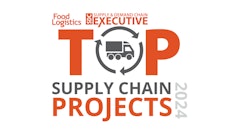Atlanta — June 13, 2007 — Does IT matter?
That was the question posed by Nicholas G. Carr in his 2004 book Does IT Matter? Information Technology and the Corrosion of Competitive Advantage, published by Harvard Business School Press.
While considerable difference of opinion about this issue exists among many business leaders, new research points to a conclusive answer: The best companies clearly use information technology (IT) as a strategic enabler to create competitive advantage. That's the message from business advisory firm The Hackett Group, leaning on benchmarking data from its latest Book of Numbers.
Carr sparked intense debate among C-level executives with his 2004 book, which challenged the conventional wisdom that IT is a strategic business tool. Carr suggested that IT has become a ubiquitous commodity and should be treated as basic business infrastructure. He asserted that IT has little ability to drive competitive advantage, and he urged companies to remain late adopters, minimizing investments in technology. The greatest IT risk companies face, he said, is overspending.
Invest More, Get More
But Hackett's research, which is based on an analysis of its extensive knowledge repository of benchmark data from over 2,100 companies worldwide, finds that world-class IT organizations — those which achieve peak efficiency and effectiveness in Hackett's IT benchmark studies — spend 7 percent more per end-user on IT operations than typical companies. For a typical Fortune 500 company with a world-class IT function, this translates into increased IT spending of $29 million per year relative to their peers.
This investment more than pays for itself by enabling reduced cost and improved performance in finance, procurement, human resources (HR) and other areas of back-office operations. Hackett's research found that world-class Fortune 500 companies run these functions at lower operational costs of $134 million per year ($7.1 million per billion of revenue) compared to typical companies, and process automation and IT enablement play a very significant role in realizing these lower non-IT back-office costs. In addition to this efficiency impact of IT, a direct correlation was found between performance of the IT function and effectiveness in finance, procurement and HR.
Key IT Strategies
Hackett's new Book of Numbers edition, "ROI in Technology: The Key to World-Class Performance," finds that in order to drive the maximum value from IT, leading companies pursue five key strategies:
"It's easy for CIOs to find themselves on the defensive," explained Hackett Senior Business Advisor Erik Dorr. "They've heard from reputable experts that IT is just a support system, a cost center where the less you spend the better. It's also not hard to find tales of companies that have spent millions or even tens of millions on IT projects that have failed miserably. We agree that not all IT investments are good ones, and it's certainly true that in many cases IT investments can't be easily justified through a conventional financial ROI analysis. But that doesn't mean that the ROI doesn't exist. It's there, and the best companies know how to find it, and turn it to their advantage."
According to Hackett Senior Business Advisor Philip Carnelley: "Hackett's research clearly shows that for world-class companies, IT is an invaluable business resource that helps them lower costs and reduce staffing across the back office, streamline operations and cut the time staff spend on transactional activities. These top performers also understand that the right IT systems make them smarter, facilitating improved strategic decision-making and enabling them to gain insights into their business, market and competition. There's no doubt that IT can deliver tremendous business benefit, if companies invest the time and energy to do it right."
More information on Hackett's findings is available at http://www.thehackettgroup.com/insights/roi/.
That was the question posed by Nicholas G. Carr in his 2004 book Does IT Matter? Information Technology and the Corrosion of Competitive Advantage, published by Harvard Business School Press.
While considerable difference of opinion about this issue exists among many business leaders, new research points to a conclusive answer: The best companies clearly use information technology (IT) as a strategic enabler to create competitive advantage. That's the message from business advisory firm The Hackett Group, leaning on benchmarking data from its latest Book of Numbers.
Carr sparked intense debate among C-level executives with his 2004 book, which challenged the conventional wisdom that IT is a strategic business tool. Carr suggested that IT has become a ubiquitous commodity and should be treated as basic business infrastructure. He asserted that IT has little ability to drive competitive advantage, and he urged companies to remain late adopters, minimizing investments in technology. The greatest IT risk companies face, he said, is overspending.
Invest More, Get More
But Hackett's research, which is based on an analysis of its extensive knowledge repository of benchmark data from over 2,100 companies worldwide, finds that world-class IT organizations — those which achieve peak efficiency and effectiveness in Hackett's IT benchmark studies — spend 7 percent more per end-user on IT operations than typical companies. For a typical Fortune 500 company with a world-class IT function, this translates into increased IT spending of $29 million per year relative to their peers.
This investment more than pays for itself by enabling reduced cost and improved performance in finance, procurement, human resources (HR) and other areas of back-office operations. Hackett's research found that world-class Fortune 500 companies run these functions at lower operational costs of $134 million per year ($7.1 million per billion of revenue) compared to typical companies, and process automation and IT enablement play a very significant role in realizing these lower non-IT back-office costs. In addition to this efficiency impact of IT, a direct correlation was found between performance of the IT function and effectiveness in finance, procurement and HR.
Key IT Strategies
Hackett's new Book of Numbers edition, "ROI in Technology: The Key to World-Class Performance," finds that in order to drive the maximum value from IT, leading companies pursue five key strategies:
- Standardize and Consolidate — Leaders streamline and simplify, and to ensure maximum return on investment (ROI) they take the critical step of standardizing master data definitions as they reduce the number of ERP systems and other applications. By reducing spending through standardization and consolidation, world-class companies can increase their focused spending in areas that generate greater strategic return.
- Focus on High Return Opportunities — Leaders take a differentiated approach to IT investment and do careful reward/risk analysis to identify areas that can reap the greatest benefits. Generally these are areas where the gap between world-class and typical companies is large in two key ways — overall performance and also how heavily technology is used. In many cases, including transactional automation, world-class performance and maximum value can only be achieved by implementing technology in conjunction with best practices and process redesign.
- Don't Indiscriminately Minimize Cost — Rather than focusing on across-the-board cost cutting, these companies take a very different perspective and seek to maximize value at the lowest achievable cost, in part by reallocating spending from technology infrastructure to application management. Hackett's research clearly shows that indiscriminate IT cost cutting has a negative impact on performance in other functional areas.
- Maximize Value of Information Assets — World-class companies obtain the greatest possible return on their technology investment by maximizing the value of information assets to end-users through data standardization, rich metadata, online information access, analytical capabilities and alignment of the information architecture with business initiatives such as enterprise performance management.
- Outsource Selectively — Leaders outsource carefully, and they use outsourcing as a tool to improve effectiveness rather than efficiency. In fact, Hackett's research shows that, for many typical companies, the lack of an effective strategy and insufficient consideration of process and infrastructure optimization prevents outsourcing from driving reductions in IT process costs.
"It's easy for CIOs to find themselves on the defensive," explained Hackett Senior Business Advisor Erik Dorr. "They've heard from reputable experts that IT is just a support system, a cost center where the less you spend the better. It's also not hard to find tales of companies that have spent millions or even tens of millions on IT projects that have failed miserably. We agree that not all IT investments are good ones, and it's certainly true that in many cases IT investments can't be easily justified through a conventional financial ROI analysis. But that doesn't mean that the ROI doesn't exist. It's there, and the best companies know how to find it, and turn it to their advantage."
According to Hackett Senior Business Advisor Philip Carnelley: "Hackett's research clearly shows that for world-class companies, IT is an invaluable business resource that helps them lower costs and reduce staffing across the back office, streamline operations and cut the time staff spend on transactional activities. These top performers also understand that the right IT systems make them smarter, facilitating improved strategic decision-making and enabling them to gain insights into their business, market and competition. There's no doubt that IT can deliver tremendous business benefit, if companies invest the time and energy to do it right."
More information on Hackett's findings is available at http://www.thehackettgroup.com/insights/roi/.



























